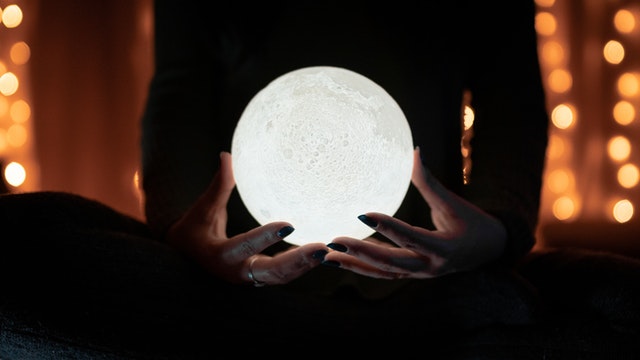Ides Of March: The Best Prophecies In Pop Culture
Photo by Gantas Vaičiulėnas from Pexels
Prophecy and fortune telling may seem like a good idea – a way to know what’s coming up, to be able to plan, to prepare, to make sure that the right decision is made. However, with few exceptions, prophecies are either completely off-base… or so difficult to interpret that those trying to just end up making things worse (or even fulfilling the prophecy because they were trying to avoid it). One of the most famous prophetic lines, of course, is ‘beware the Ides of March’. Spoken by a soothsayer to Julius Ceaser in Shakespeare’s play, it’s something of a perfect prophecy. Doomy, gloomy, and so completely vague that anything from a stubbed toe to a stabbing can still be considered to ‘fit’.
Of course, Shakespeare is far from the only writer with a fondness for fortune-tellers. From fantasy novels where magic lurks around every corner to TV and film, where fandoms pick apart each letter of a prophecy to support their own favorite theory, prophecy is everywhere. And when it’s about a fictional character… prophecy can actually be pretty fun! Here are some of the best, most famous, and most ridiculous prophecies in pop culture – for anyone hiding inside with their laptop this Ides of March.
Harry Potter And The Hall Of Prophecies (J. K. Rowling)
Born to those who have thrice defied him, born as the seventh month dies … And the Dark Lord will mark him as his equal, but he will have power the Dark Lord knows not … And either must die at the hand of the other for neither can live while the other survives.
The wizarding world of Harry Potter is home to plenty of prophecies – an entire hall of them, in fact. Rowling also created some interesting magical lore around the storage of prophecies, which makes these particularly interesting. In this world, prophecies are recorded and tracked by the Ministry Of Magic in glass orbs which can only be retrieved by the people mentioned within the prophecy.
In addition to creating this fascinating new way of hanging on to prophetic records, Rowling also created some of the best examples of the problems with prophecies. The most famous prophecy in the series is the one concerning Voldemort and his eventual doom; the prophecy that Voldemort assumed referred to Harry Potter. Of course, as fans have pointed out, it could just as easily have referred to Neville Longbottom, until Voldemort attempted to kill Harry and thus ‘marked him’. It’s a great example of a prophecy with twists and turns, but one that is also fulfilled because Voldemort attempted to prevent it. Had he ignored both boys, they would have grown up much like Ron – happy, in wizarding families, with no particular powers or need to defeat Voldemort. Had the Dark Lord not attempted to kill Harry, he wouldn’t know Parseltongue and have been able to open the Chamber of Secrets. He wouldn’t have had the window into Voldemort’s mind that caused so many problems. In short… he wouldn’t have been the Chosen One if Voldy hadn’t chosen him.
And of course, a special bonus mention has to go to Trelawney’s other predictions while teaching at Hogwarts. More doom and gloom, but this time, as a desperate woman, wishing she was a true seer (more than twice in her life), and hiding behind incense and wispy fabrics like plenty of fortune tellers we can find in our world.
Lord Of The Riddles (J R. R. Tolkien)
From the ashes a fire shall be woken,
A light from the shadows shall spring;
Renewed shall be blade that was broken,
The crownless again shall be king.
Prophecy is also a huge part of this fantasy franchise, with poetic prophecy popping up left, right, and center. However, unlike in Harry Potter, these aren’t always presented as ‘fortune telling’, and (especially in the film adaptations) the source isn’t necessarily even provided (let alone given a tower room at Hogwarts…). Probably the most famous prophetic poem in The Lord Of The Rings is also known as The Riddle of Strider and The Song Of Aragorn is given to Frodo in a letter (in the books) and recited by Arwen to her father (in the films).
Whoever reads it, the prophecy isn’t something that people spend a huge amount of time working out, or trying to fulfill or avoid. The prophecy isn’t the reason that the Steward of Gondor refuses to recognize Aragorn’s claim to the throne – it’s his own power madness that makes him cling so hard to his own post. Even without the prophecy, it’s likely that Arwen would try to convince her father to reforge the sword of legend and bring it to her lover to help him in battle. Yet, despite the fact that the prophecy is not a sole motivator for anyone’s actions (unlike Voldemort’s prophecy), there’s no doubt that it comes true. Narsil (reforged into Anduril) was "renewed," giving Aragorn the power to win the final battle, and reclaim his crown, for a truly happy fantasy ending.
Game Of Valonqar Theories (George R. R. Martin)
Another fantasy epic that is prophecy-filled is George R R Martin’s A Song of Ice And Fire, aka Game of Thrones. There are so many major prophecies, in fact, that it’s difficult to pick just one (or two, or three) to talk about. More importantly, these prophecies are fascinating because the series is ongoing, and no one yet knows if there is truth to… any of them. Unlike in Harry Potter, where at least a few people knew, without a shadow of a doubt, that Trelawney’s prophecy was true, or Lord of the Rings where pretty much every prophecy comes to pass, the Game of Thrones prophecies come through priests and priestesses, unreliable sources who will admit that even they don’t always understand what they see.
The prophecies are also worded incredibly vaguely (more so than most), and some may crossover – such as those of Azor Ahai and The Prince That Was Promised. Issues of translation from Valyrian mean that the Valonqar, prophesied to kill Cersie Lannister, may not necessarily be a man, or even her sibling. The three heads of the dragon may mean literal dragons, people, dragonriders, or something else altogether. Westeros (and Essos) is so filled with vague prophetic visions and legends that it’s essentially possible for almost anyone to become almost any chosen one in almost any way.
This is fantastic for fan theories, of course, because of the myriad possible interpretations, but it’s also fantastic as a relatively accurate portrayal of the whole prophecy game. These aren’t cut and dried, clearly understood, or even true puzzles to be figured out. These could be the mad ravings of priestesses who misunderstand the flames, visions created to drive someone insane or just upset them… or they could actually be true, and no one will know until the series ends.
Good (And Surprisingly Accurate) Omens (Neil Gaiman)
The last of these favorite prophecies to make it to live action adaptation is Neil Gaiman’s Good Omens, which will be hitting the small screen later this year. A wild ride about a demon and an angel attempting to stop the apocalypse (coming at the hands of a small boy), this book is packed with fascinating and convoluted stories – and some incredibly convoluted prophecies, too.
The Nice And Accurate Prophecies Of Agnes Nutter was written by (unsurprisingly) Agnes Nutter, a prophetess who lived in the 1600s, was entirely accurate in every prediction, and was burned as a witch for using this knowledge to try and help people. Now, her prophecies live on, and her descendant must use her book to attempt to figure out when the Apocalypse is coming. However, while her writings are 100% correct, they are also incredibly tricky to interpret, because she was writing so many years before these things would come to pass. A 17th century witch is hardly going to know the correct spelling of "betamax," after all.
Our final favorite prophecies are favorites because they prove that even the most accurate prophecies in the world might not actually be helpful… and that perhaps, just enjoying life and doing the best we can is a better use of time than getting too wrapped up in predictions.
What are your favorite pop culture prophecies? Tweet @quirkbooks and let us know!


